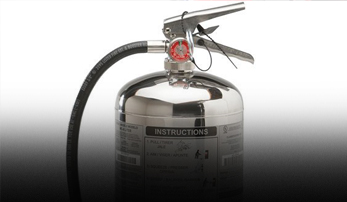Ensuring Integrity in Sports How to Guarantee Fair Play

How to Guarantee Fair Play in Sports: Strategies for Integrity and Accountability
In the world of sports, fairness and integrity are paramount. Athletes, coaches, and fans all expect that competitions are conducted with a standard of fairness that upholds the spirit of the game. Ensuring fair play is critical not only for the integrity of the sport but also for maintaining public trust and engagement. Here, we will explore several strategies to guarantee fair play, focusing on transparency, accountability, and ethical behavior. For those interested in sports betting, utilizing platforms like How to Guarantee Fair Play on Casino Apps in Bangladesh bet9ja shop login ensures that your gambling activities remain within a fair and regulated environment.
1. Establish Clear Rules and Regulations
One of the foundational aspects of guaranteeing fair play is having a clear set of rules that are well communicated to all participants. These rules should cover all dimensions of the game, including player conduct, rules of engagement, technical specifications, and the consequences of violations. Regulatory bodies and organizations that oversee sports should take responsibility for updating and disseminating these rules regularly to ensure that they remain relevant and effective.
2. Promote Transparency
Transparency is key to establishing trust in any competitive environment. When rules are clear, and their enforcement is visible, it helps to assure participants and fans that the competition is fair. Transparency can be enhanced through various means, such as:
- Real-time monitoring of games through technology.
- Open access to referee decisions and the reasoning behind them.
- Public reporting of any instances of cheating or misconduct.
3. Implement Advanced Technology
Advancements in technology can play a crucial role in promoting fair play. Tools such as video-assisted refereeing (VAR), goal-line technology, and biometric monitoring can help ensure that games are officiated accurately. The integration of technology not only reduces human error but also provides a framework for accountability. Organizations must invest in these technologies to equip referees and officials with the necessary tools to make informed decisions.

4. Enforce Stricter Penalties for Cheating
To deter dishonest behavior, it is essential to implement stringent penalties for those caught cheating. This includes players, coaches, and any other personnel involved in the sport. Penalties can range from suspensions to lifetime bans, depending on the severity of the infraction. Establishing a zero-tolerance policy for cheating sends a strong message that unfair practices will not be tolerated, ultimately promoting a culture of integrity.
5. Foster a Culture of Fairness
Creating an environment that prioritizes fairness requires a cultural shift within sports organizations and communities. This can be achieved by:
- Education and training programs for athletes, coaches, and officials about sportsmanship and ethics.
- Recognizing and rewarding individuals and teams that exemplify fair play.
- Encouraging open discussions about fairness and ethical dilemmas in sports.
6. Engage Stakeholders
Engaging all stakeholders in the process of promoting fair play is essential. This includes athletes, coaches, sporting bodies, fans, and even sponsors. By involving these groups, sports organizations can gather insights and feedback on how to enhance fairness. Regular dialogues can help pinpoint areas that require improvement and strategies that are in place and effective.
7. Sign Agreements and Codes of Conduct

Formal agreements and codes of conduct can serve as powerful tools in promoting fair play. These documents should outline the expectations for behavior and the repercussions for violating the code. Both players and officials can sign these agreements to commit publicly to uphold integrity in the sport, emphasizing the importance of accountability.
8. Mental Health and Well-being
Addressing the mental health of athletes is another key factor in promoting fair play. Pressure to win can sometimes lead to unethical behavior. Providing proper mental health support and resources can help athletes make better decisions, prioritize their well-being, and focus on fair competition.
9. Community Involvement
Grassroots involvement is crucial for fostering a culture of fair play from a young age. Building programs that emphasize ethical competition among youth can have a lasting impact. Sports organizations should develop initiatives that encourage young athletes to play fairly, understand the importance of good sportsmanship, and recognize the value of integrity in their activities.
10. Regular Monitoring and Evaluation
Lastly, it is important for sports organizations to continuously monitor and evaluate their efforts to promote fair play. Feedback mechanisms should be in place to assess the effectiveness of existing policies and practices. Regular audits and reviews can identify gaps in enforcement, allowing organizations to make the necessary adjustments and ensure that their commitment to fair play remains steadfast.
Conclusion
Guaranteeing fair play in sports is a collective responsibility that requires the commitment of everyone involved—athletes, coaches, officials, and fans alike. By establishing clear rules, promoting transparency, leveraging technology, and fostering a culture of ethics and fairness, sports organizations can create environments where integrity is valued. The measures outlined above provide a framework for ensuring that competitions are equitable, enjoyable, and reflective of the true spirit of sportsmanship.









Recent Comments